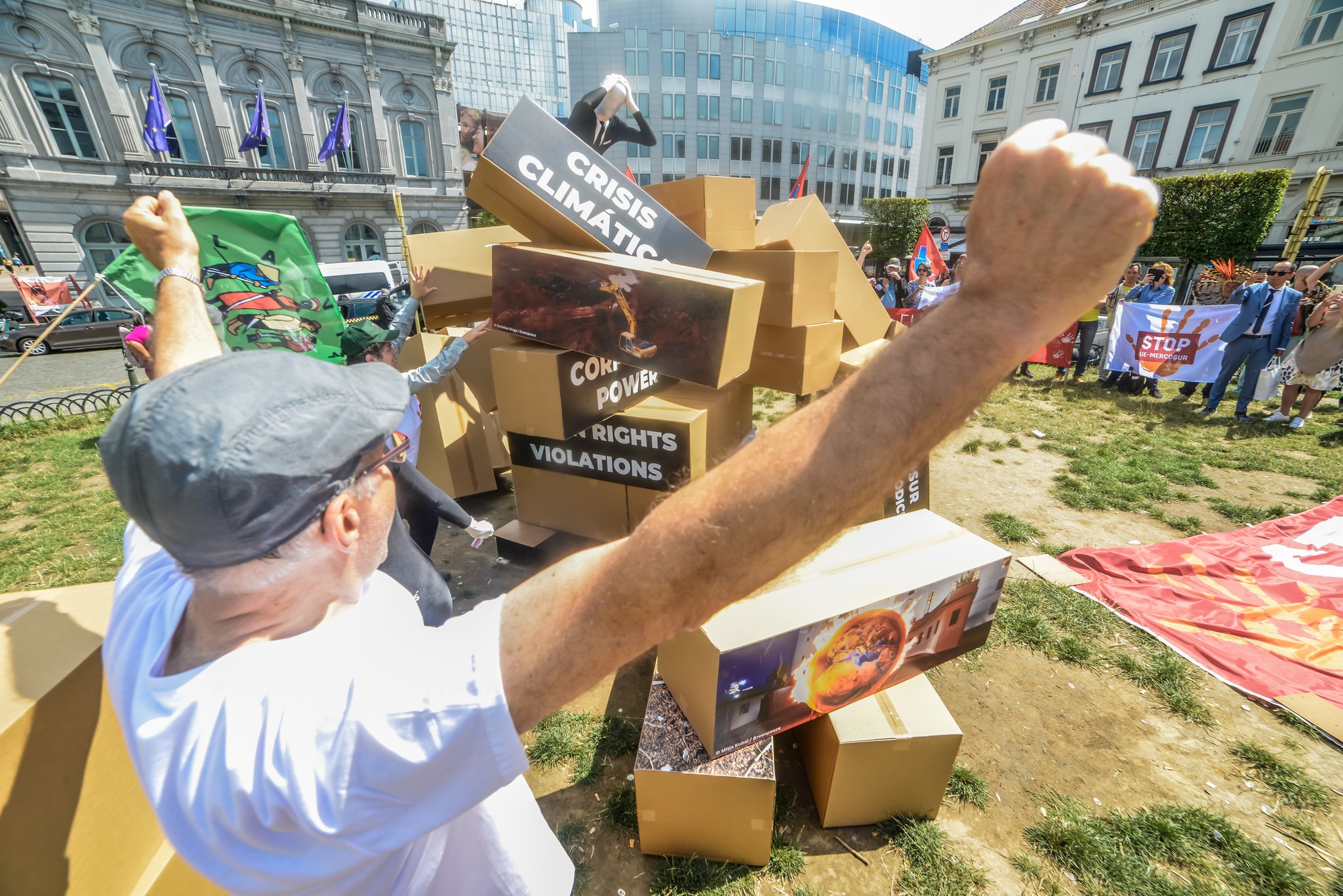A climate-denier Milei and a hypocritical EU-Mercosur pact
Friends of the Earth Europe | 22 January 2024
A climate-denier Milei and a hypocritical EU-Mercosur pact
By Julie Zalcman, Friends of the Earth Europe
In the rush to finalise the controversial EU-Mercosur trade deal before the European elections in June this year, its promoters appear willing to shake hands with Argentina’s new far-right president, Javier Milei — a known climate change denier. The pressing question now is, will the EU sell out the environment and human rights for the sake of trade?
While an agreement in principle was reached in 2019, the EU stopped its ratification under former Brazilian president Jair Bolsonaro due to record-breaking levels of deforestation and forest fires in the Amazon, coupled with a surge in human rights violations in the country.
Back then, France, Austria, Belgium and the Netherlands were among several governments and parliaments to express their reluctance to ratify a deal with the far-right leader.
Concerns over the deal’s risks for environmental protection pushed the European Commission to publish an environmental annex to the agreement — an exercise that ultimately proved to be mere greenwashing, offering only cosmetic and unenforceable adjustments.
As the EU-Mercosur negotiations are once again speeding up, the grim reality remains: deforestation and human rights abuses persist in Brazil. While President Lula has shown a strong commitment to better protecting the Brazilian Amazon, deforestation is still on the rise in less-protected areas of the Mercosur region.
Destruction of the Cerrado, the world’s most diverse savanna, surged by 141 percent in September 2023, in comparison to the previous year. And the same goes for the Pantanal, the world’s largest tropical wetland, now at imminent risk of collapse because of agricultural expansion and forest fires.
Not only do deforestation issues persist, but so do threats to local communities’ health and biodiversity. Brazil continues to be the world’s top pesticide user, with the approval of 42 new agrochemicals under Lula’s second presidency, including 24 that are not authorised for use in the European Union.
A recent study exposes the prevalence of slave labour in the Brazilian cattle ranching industry and its trade links with the EU supply chain, raising legitimate concerns that European countries are importing products tainted by human rights abuses.
Milei and the art of European hypocrisy
The EU’s continued pursuit of the EU-Mercosur agreement amid these environmental and human rights concerns is glaringly hypocritical. The rise of the far-right in Argentina, with president Milei at the helm, should have spelt the end of this outdated deal. Yet, the European Commission and Germany are now urging that the negotiations be finalised.
During his campaign, Milei repeatedly denied the climate crisis and called for the privatisation of common goods. One month only after his election, he launched a legislative reform package that included the modification and abrogation of numerous environmental protection norms on forests, glaciers, fire-fighting, and fishing.
Other measures such as the liberalisation of land ownership for foreign investors and the creation of a carbon credit market will benefit polluting fossil-fuel industries, agribusiness and mining. It will increase the pressure on Argentinian raw materials, in particular lithium, needed for the so-called ’Green transition’.
Local communities and Indigenous Peoples have been fighting for years against the extractive industry and its environmental impacts, but the right to protest of Argentinian citizens is now also being curtailed by Milei who additionally started a repressive and anti-democratic offensive.
In light of the ongoing environmental devastation and Argentina’s new political agenda, will the countries who refused to ratify EU-Mercosur with Bolsonaro still agree to shake hands with climate-denier Milei?
The reasons to stop the EU-Mercosur deal haven’t changed since 2019. This agreement remains intrinsically toxic for the planet and the people. It perpetuates an unsustainable and neo-colonial system, based on the plunder of nature for the profit of a few.
As the world grapples with urgent challenges — the climate emergency, rising inequalities, the surge in far-right populism — the EU must forge new trade relations, based on solidarity, justice, protection of human and labour rights, and respect for the planet’s boundaries. A vision that is definitely not compatible with the EU-Mercosur deal.
EU trade policies should align with the bloc’s climate goals, and environmental and human rights standards, not undermine them.






